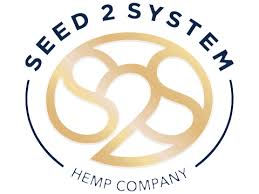
Hemp Fibre
Since 1937, about half the world's forests have been cut to make paper. If hemp had not been outlawed at that time, most would likely still be standing, oxygenating the planet. Hemp plants provide four times the paper fibre per acre per year than trees do - even plantation poplar trees - and can be planted again the next year. Previous to 1883, over 75% of the world's paper was made from hemp, much of it recycled from ships' hemp sails and ropes. With the emerging new processing technologies, that could happen again and in a way that pollutes much less than processing wood fibre. Hemp paper has proven to be more durable, longer lasting and recyclable more times than most tree based paper and requires no chlorine in the bleaching process.
Hemp Farming
Traditionally farmers grew hemp for the fibre for ropes and cloth, since it grows the longest and strongest natural fibres. They also grew hemp for the seeds for their food and animal feed and to crush for edible, lamp and finishing oils. The economic vibrancy of the family farm began declining soon after farmers were prohibited from growing hemp.
Since 1998, growing hemp has once again been legalized in Canada. Hemp is a crop that fits well into the farm rotation cycle. It usually needs no pesticides or herbicides and when grown for fibre, plants are placed closer thereby easily eliminating weeds by outgrowing them, thus making it a good crop for transition to organic certification. It is drought resistant and has long penetrating roots that aerate the soil and prevent erosion.
Healthful Hemp
An interesting study recently conducted by the University of Kuopio, Finland, compared the nutritional value and other health benefits of Hempseed oil and Flaxseed oil. It found that Hemp oil gives a "dramatic increase in Blood Level GLA (Gamma-Linoleic Acid)" - while flax oil actually lowers Blood Level GLA. (For more about GLA, see Nutrition and for more information about this study see the Ontario Hemp Alliance website.)
Essential Fatty Acids (EFAs) are abundant in hemp seeds. EFAs, lacking in most North American diets, can clear arteries of cholesterol, slow MS symptoms, improve immune system and hormone functions, and nourish brain cells. Deficiencies manifest as arthritis, PMS, osteoporosis, depression and more. Recent studies show that hempseeds can also help with some forms of diabetes.
More easily digested complete protein can be grown per acre with hemp than with any other crop. Soybeans need cooking to make them digestible, while hempseeds' nutrients are available in either the raw or lightly cooked state. People have been eating them for thousands of years.
Hemp seeds made into a 'milk', along with a liver respecting diet, have been shown to cure TB. The edestine protein in hemp was found to be the active principle.
Due to its high EFA content, hemp oil used in cosmetics can assist in the treatment of many skin ailments, including eczema, psoriasis, neurodermatitis and dry skin. We have found hemp body butter very soothing to our hands after a day of garden work or washing dishes and excellent for massage.
Over 25,000 Potential Uses
Hemp Oil is also used in biodegradable soaps and cleaning products, easing the burden of chemical based detergents on the environment. It can also serve as a base for paints and varnishes, because of it's excellent drying quality.
In 1937, Popular Science magazine listed over 25,000 potential uses for the hemp plant. Modern technology has even increased its uses, from products as diverse as highly nutritious foods to building insulation and pvc plastic. Today's challenge is for processing technology to catch up to the farmers' ability to grow the crop. Dormant for 60 years, the hemp industry is only now beginning to creatively explore better ways of harvesting and processing the crop. One recent innovation has been to remove the crunchy outer shell of the seed to make the soft inner kernel available. Many other new food uses of the seed and the kernel have emerged onto the marketplace since Canada again legalized hemp growing.
Hemp, the Environment and the Future
Hemp can help the environment by slowing climate change and lessening acid rain (by switching to hemp ethanol and hemp biodiesel fuels), by using less farm chemicals (cotton uses about 50% of all pesticides and herbicides in the US, as contrasted with longer-lasting hemp fibre cloth, which generally needs none of either), by making paper from hemp (no dioxin bleach needed, produces four times more paper per acre per year than trees), and by reducing imports as Canada grows (and uses) its own. Domestically grown fuel can also reduce the likelihood of future oil wars.
Hemp has a significant role to play in our future. Hemp can help the farm economy, our health, the environment and can contribute to a "whole earth" solution.






Discover the Wonders of Hemp & CBD Products with HempChoices





















































































































































































































































































































































































































